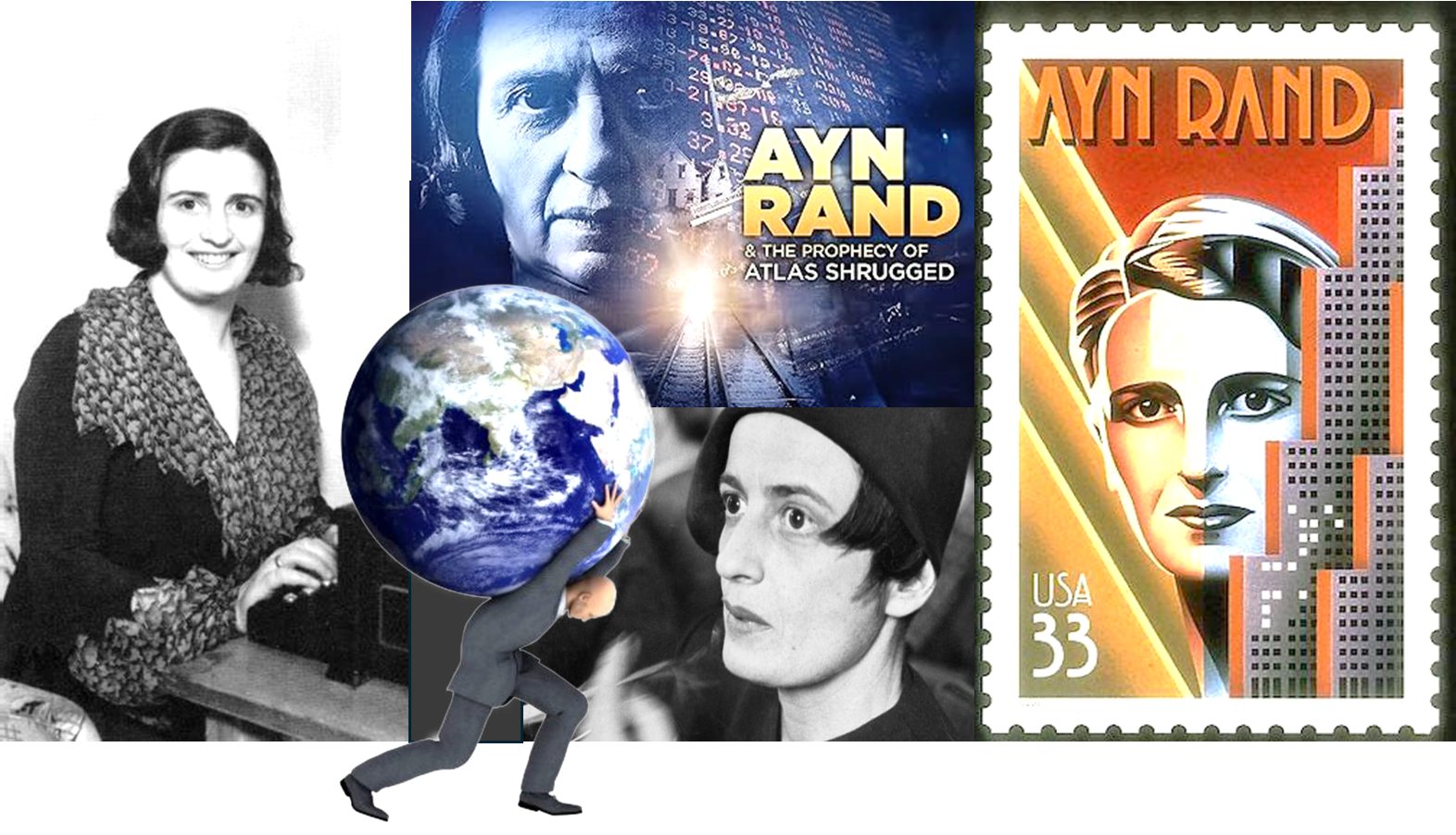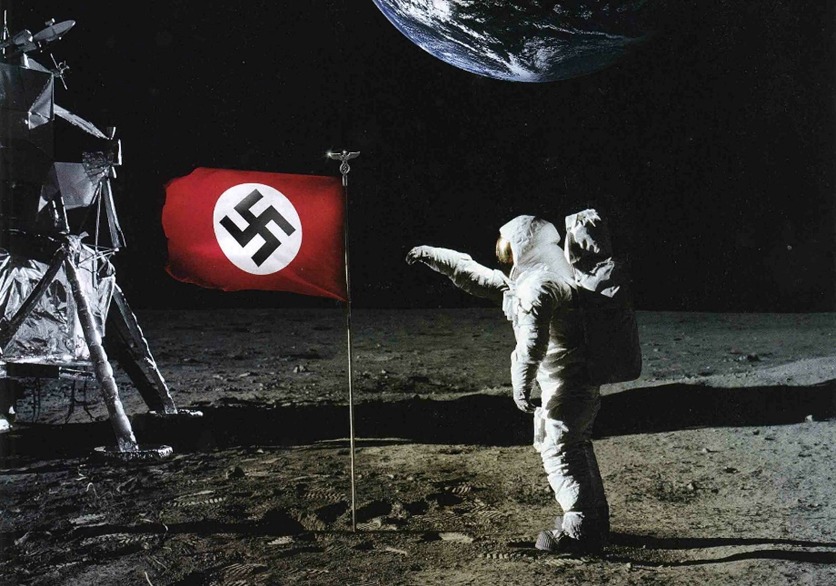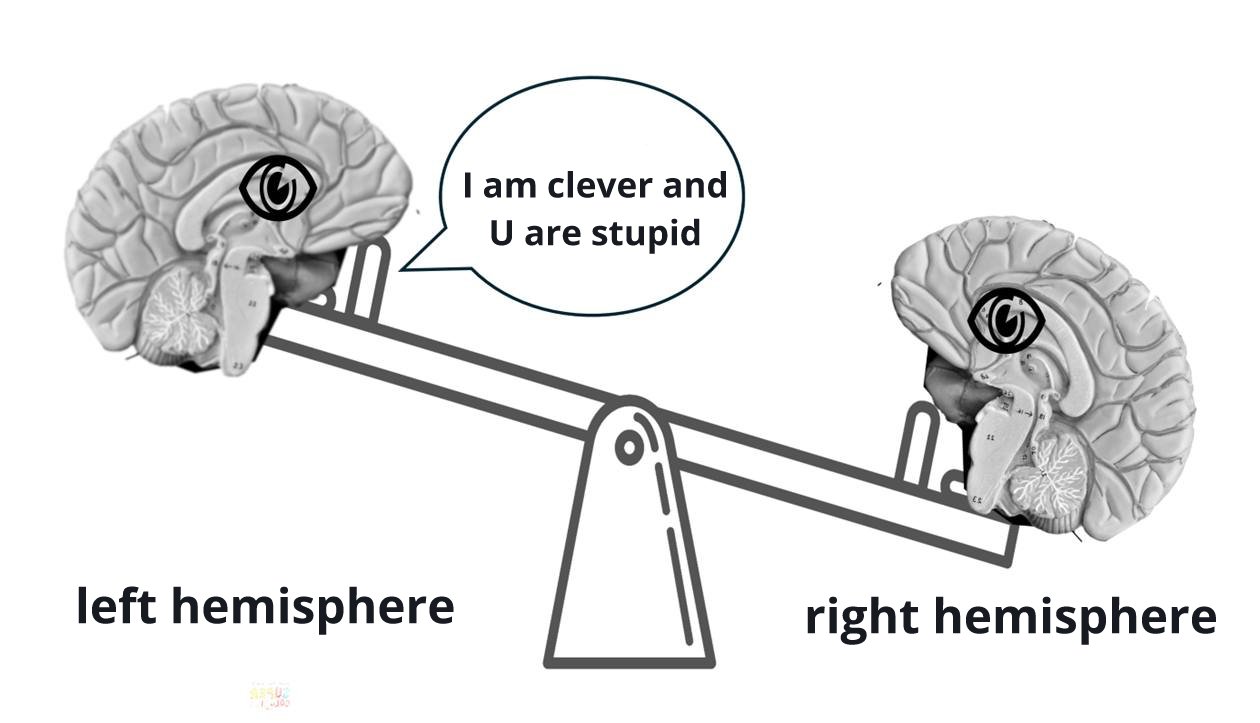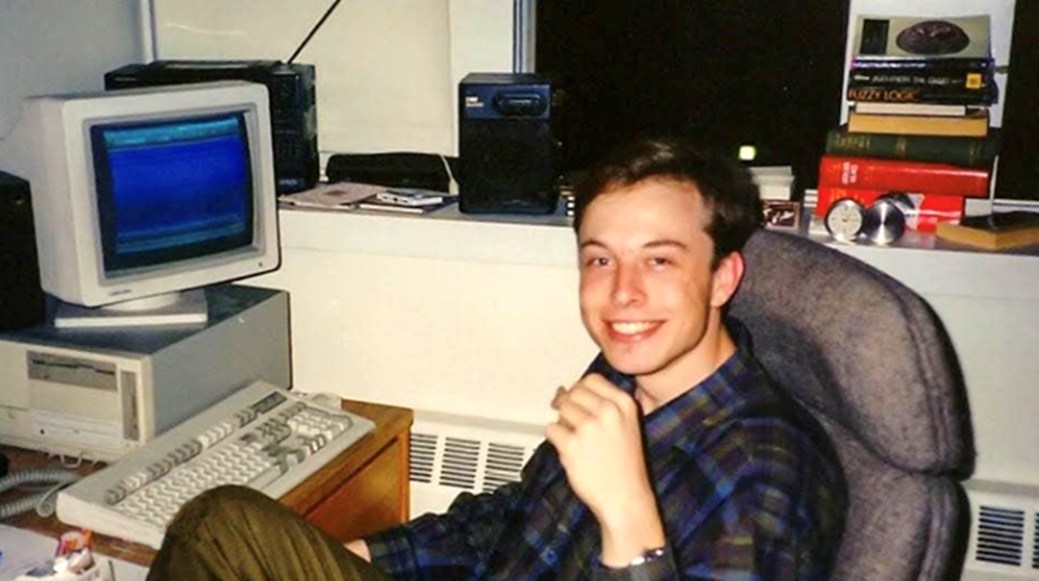by by Niels Engelsted 2025 - link only works, if you are embedded on Fake Book
Little Alisa was a difficult and stubborn child who caused her mother constant worry. She was certainly bright enough, could read early and all that, but Alisa wanted to go her own way, caused discord, did not want to wear nice clothes, did not want to attend children's birthday parties in the homes of the better bourgeoisie in St. Petersburg. Yes, she would rather not have anything to do socially with other children.
When she was 12 years old, Alisa and her younger sisters could watch the February Revolution unfold from the Rosenbaum family's large balcony with the crowds of demonstrators on the boulevard below the family's mansion, and this of course became a turning point in her life.
Her father's pharmacy was nationalized when the Reds came to power, they had to share the large apartment with several other families, and the servants disappeared. The family therefore fled to the Crimea, which was occupied by the Whites for a time.
Soon back in the capital, the mother adapted to the new times with alacrity and took on the task of, for example, the leader of a Red youth club. The father, on the other hand, sat in a corner and brooded over the injustice of the world; often in conversation with his eldest daughter, whose favorite topic was the little men who ganged up to keep the big men down.
With the victory of the Reds, women could now go to university, and despite her bourgeois background, the intelligent Alisa was one of the first. She loved film, so she concluded her university studies in philosophy and history with a year at the State School of Performing Arts, where she wrote her graduation thesis on the Polish silent film star and femme fatale Pola Neri, who from a youth filled with hardship and pain became the first European Hollywood star and celebrated as the great sex symbol of the time.
Alisa clearly recognized herself in the romantic story, so when the Soviet authorities gave her permission to visit her family in Chicago, she didn't look back, and soon she was in Hollywood.
The journey from Russia to America had been made by many Jewish emigrants before her, and Alisa's journey would not have been possible if her relatives had not helped her with lodging, food, and money along the way. But that was of course a given, Alisa thought; she was the star, after all, and to her relatives' astonishment, she never expressed any gratitude.
In Hollywood, luck was on her side. A chance meeting with the film magnate Cecil B. DeMille (the man behind The Ten Commandments and Cleopatra) got her a job as a screenwriter, after which she dropped Alisa Zinovyevna Rosenbaum in favor of the
artist name Ayn Rand, under which name she later achieved world fame. [Ayn is pronounced as ‘own’]
Her fame was due to two colorful novels that she wrote in the following years.
The Fountainhead from 1943 (in Danish
Only the strong are free) and
Atlas Shrugged from 1957 (in Danish
And the world trembled).
The theme is the same: The great one is held down by the collective power and eternal demands of the small people. In Fountainhead, it is an individualistic and innovative architect (in the film adaptation played by Gary Cooper) who must fight against the petty and stifling conformity of the established architectural world. In
Atlas Shrugged it is a dedicated and visionary female manager of a large railway corporation who, against the endless demands and excessive regulations of the collective society, fights to keep her business running.
In
Atlas Shrugged, however, the great ones finally get fed up with the collective society that punishes innovation and creativity and rewards mediocrity. Persuaded by a mysterious and charismatic figure, John Galt, who symbolizes the ultimate individualist and acts as Ayn Rand's superhero, the big business leaders, inventors and artists go on strike in protest against the society that exploits and oppresses them.
They leave their posts and retreat to a secret valley in the Colorado mountains, where, led by Galt, they build their own utopian society based on freedom, individualism and unfettered market capitalism.
And what happens, of course, when Atlas, who carries everything and everyone on his shoulders, shakes those shoulders (the book's title)? Of course, all the little people fall to the ground as if they were scales, and without the big guys, society collapses with economic collapse, social unrest and human misery in the long run. But then the little mediocrity can learn!
Revenge fantasies with a super avenger are always good material in the hands of a skilled screenwriter, and can always make us childish souls jump in our seats with joy. Think Ayn Rand as Stieg Larsson and John Galt as Lisbeth Salander.
However, this juicy aspect is not the only reason why Rand's books have sold more than 30 million copies and are still selling in large numbers. Behind the colorful drama, the novels are also disguised philosophical treatises, in which the cerebral Ayn Rand presents her philosophy of life and worldview in fictionalized form.
 Rand's philosophy can be expressed very simply: Think of yourself first.
Rand's philosophy can be expressed very simply: Think of yourself first.
The philosophy has two parts. (1) Think first and (2) Yourself first.
The first part expresses that our actions should always be based on objectivity, logical thinking and rational calculation, not impulsive emotions, subjective sensations and the like. Rand therefore calls her philosophical school Objectivism.
If we use our rational thinking and manage to be objective, we arrive at the second part, which expresses that self-interest or selfishness is the basic law of life. Every person should act according to his own self-interest and not sacrifice himself for others or expect others to sacrifice themselves for them. One must stand alone and be strong, because only the strong are free, and if necessary, one must be ruthless, one owes it to oneself.
This philosophy is of course the gefunden's fressen for both frustrated teenagers who feel inhibited by uncomprehending parents, frustrated sociopaths who lack a good theory to understand themselves in, and frustrated capitalists who feel inhibited by social regulation and taxes, demanding employees and self-serving unions.
But even though the message will never lack subscribers, the gospel of self-interest nevertheless gets a huge boost with the return of the ideology of raw and unbridled market capitalism with Milton Friedman's neoliberalism, which led by Margaret Thatcher ("there is no society, only individuals") and Ronald Reagan ("the most terrible words in the language are, 'We are from the government and come to help!'") sweeps aside the community-oriented social liberalism that has prevailed in Western societies since the Second World War.
Finally, the message also reaches Denmark. According to a biography, Anders Fogh Rasmussen was given Ayn Rand's 'Only the Strong Are Free' by his daughter, believes he recognizes himself in the main character, and is inspired to write 'From the Welfare State to the Minimal State.'
Our local oligarch Lars Sejr Christensen from Saxobank is also enthusiastic and has 10,000 copies of the Danish edition of Atlas Shrugged printed with his own cover and foreword, with his own money, which are distributed to the bank's employees and customers and sent out to various opinion leaders, all ministers, mayors and county mayors, as well as to the business leaders of Denmark's two thousand largest companies.
At the reception in Saxo's auditorium in Tuborg Havn, where the book is introduced in the presence of staff from the bank, members of the liberal think tank Cepos and younger students from the Danish School of Economics, co-director Kim Fournais concludes: "Altruism leads to a poor society." Rand's message should then be clear. Self-interest is the basic law of life and the way forward. Self-interest is death.
The message is still alive and well and continues to speak to young hearts. For example, in the Liberal Alliance, the party that Lars Sejr Christensen founded or bought. In 2024, the Liberal Alliance won the school elections for students in 8th, 9th and 10th grade with 30 percent of the vote.
Intelligent, educated at a Marxist university and with Aristotle as her philosophical guiding star, Ayn Rand's philosophy could not of course be completely and utterly wrong, and it is not. Self-interest IS the basic law of life. Which simply follows from the fact that every animal must die that is not able to acquire food for itself. Even baby animals die if they cannot find the mother's womb and suckle on their own. Life without self-interest is impossible.
But life has another basic law. It says that every species must become extinct that does not reproduce and ensure the survival of the species in the form of new generations. All species therefore spend a lot of time and energy reproducing. If, as Rand prescribes, one is to be objective and not be guided by subjective feelings, it is impossible, however, to find anything self-interested in reproduction and brood care. Objectively, one finds nothing but toil and toil and material self-sacrifice. Reproduction is, in other words, the opposite of self-interest. It is pure selflessness and yet it takes place over long periods in the animal world.
FOOD and CHILDREN are simply the two fundamental ways in which living beings manage to keep the second law of thermodynamics in check and stay alive. That is as fundamental as it can possibly get.
The biological basis of life is binary, but for the sake of completeness it should be mentioned that there is a trance that can be confusing. Namely mutual benefit, which is when you help yourself by helping someone else at the same time – quid pro quo, something for something, possibly offset. Since common interest is the basis of sociality, it plays a large role in social species like ours. Since it is a question of mutual self-interest, enlightened self-interest, if you will, common interest is still self-interest and not a category of the same fundamentally independent character as disinterest.
If Rand's works celebrate self-interest and selfishness, we search in vain for traces of self-interest. Not even the self-interest that is expressed in reproduction. Although children occupy a large place in all societies, there are virtually no children in the more than one thousand pages of Atlas Shrugged. Only a train car full of children that crashes catastrophically as a result of the strike of the big bosses. Ayn Rand did not care for children, neither in the novel nor in reality; not even the children of her relatives, and she had no children herself. In short, Ayn Rand was not for children.
Here, however, we are reminded of the T-theory of intelligence and the two unequal cerebral hemispheres from the second chapter of this series. We remember that intelligence resources are, in very simplified terms, distributed in such a way that the left hemisphere facilitates the rational and instrumental intelligence that targeted self-interest requires, while the right hemisphere facilitates the holistic, social and emotional intelligence that the unselfishness of child-rearing requires.
This naturally leads to the conclusion that Ayn Rand, with her doctrine of objectivism and the primacy of self-interest, must have an overdeveloped left hemisphere, and with her rejection of children and all unselfishness, must have an underdeveloped right hemisphere. In other words, she is a perfect example of a marked left-brain or half-brain.
Similarly, one could say that her philosophy is a half-brain theory. One half is not wrong as such, but the other equally necessary half is missing. Which is actually worse than if it had all been wrong. Now the correct part comes to act as a Trojan horse for anti-human ideologies, and is thoughtlessly dragged into the city by children, half-educated robbers and other unsteady souls.
Of course, there is no shortage of them either. Ayn Rand founded her own small philosophical study group in New York, with the later National Bank Governor Alan Greenspan as a faithful student, and although her little school eventually disintegrated because Rand did not tolerate opposition and became furious when anyone contradicted her, it was not the end.
While Rand sat alone, brooding and angry, her philosophical work continued as an entire movement, which, supported by American corporations and multimillionaires, grew and grew and appeared on both postage stamps at the post office and the curriculum of many American universities. Once you have stimulated your appetite, you can easily find tons of interviews with and material about Ayn Rand on YouTube.
A final remark. Many condemn Alisa Rosenbaum/Ayn Rand for her ruthless selfishness; both her personal selfishness and the gospel of self-interest she preached in her books. But consider that it is actually equivalent to condemning the colorblind who cannot see that the color is red. You can't blame half-brains for missing half a brain.
We are not done with Ayn Rand, but right now we need to meet a more normal child.




